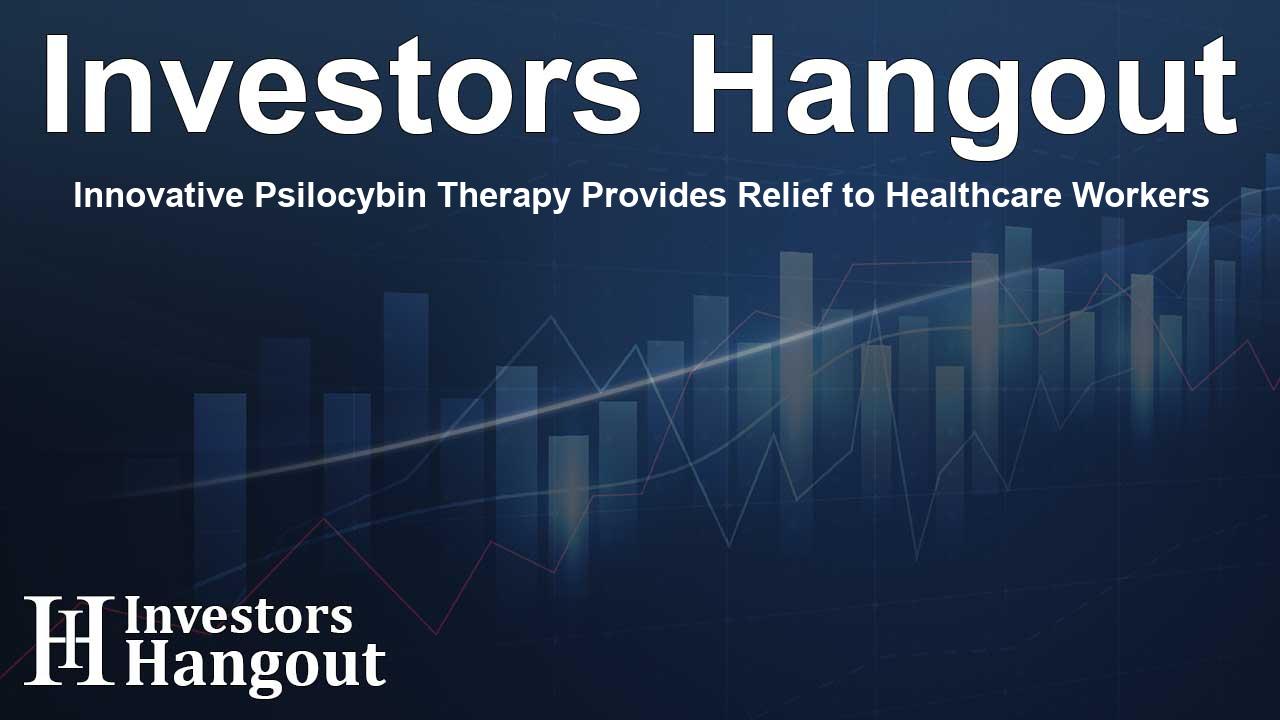Innovative Psilocybin Therapy Provides Relief to Healthcare Workers

Psilocybin Combined with Mindfulness Offers Hope for Healthcare Workers
In recent findings, a significant breakthrough has been made in addressing mental health challenges faced by healthcare workers, particularly in the aftermath of the COVID-19 pandemic. A recent study revealed that nearly half (46%) of healthcare professionals participating in a treatment that incorporated psilocybin and mindfulness techniques reported being free from depression symptoms within just two weeks. This stands in stark contrast to a mere 8% of those who engaged solely in mindfulness practices.
Groundbreaking Study Insights
The research was conducted by the Huntsman Mental Health Institute at University of Utah Health and published in a prestigious medical journal. The study evaluated how combining psilocybin group therapy with an eight-week Mindfulness Based Stress Reduction program benefited doctors and nurses tackling the emotional toll of treating COVID-19 patients.
A total of 25 healthcare workers participated, all of whom were experiencing symptoms of depression and burnout after working on the frontline. Participants were divided into two groups: one received a single psilocybin dosage along with eight weeks of mindfulness training, while the other group undertook mindfulness training without psilocybin.
Remarkable Improvements Observed
Results showed that those who received the combination treatment had their depression scores significantly lowered—twice as much as those who only practiced mindfulness. Along with reduced depression, patients reported feeling less emotionally drained and more connected with themselves and others.
Dr. Benjamin Lewis, the study's lead author and an associate professor of psychiatry at the University of Utah, emphasized the need for innovative approaches. He pointed out that the increase in depression and burnout rates among healthcare workers during the pandemic necessitated finding new treatment methods that could effectively address these growing issues.
Transformative Potential and Scalability
This study indicates a transformative potential in treating mental health conditions among healthcare workers. Typical psilocybin research can be resource-intensive, usually requiring two therapists per patient for individual sessions. However, the group-based approach utilized in this study not only made the treatment more accessible but also indicated a promising method for scalable mental health care. This could pave the way for more healthcare workers to receive effective treatment.
Focus on Long-term Mental Health
The treatment's noteworthy results underscore the importance of long-term mental health support for those in healthcare, who spend their careers caring for others. By incorporating modern psychedelic research with conventional mindfulness techniques, there is hope for ongoing improvement in mental health care curriculums and tactical approaches.
About Huntsman Mental Health Institute
The Huntsman Mental Health Institute at the University of Utah stands as a pioneering entity tackling mental health and substance use disorders nationwide. It boasts an impressive model that merges leading academic research with superior mental health crisis care services. The institute features a 161-bed hospital and numerous outpatient facilities, providing vital support to the community.
Furthermore, it offers unique educational opportunities in psychiatry, ensuring the next generation of healthcare professionals is well-prepared to address the complexities of mental health. The institute’s mission is supported by a generous $150 million contribution from the Huntsman family, aimed at advancing our understanding and treatment of mental health issues.
Frequently Asked Questions
What is the connection between psilocybin and mindfulness in treating depression?
Combining psilocybin with mindfulness practices has been shown to yield more significant improvements in symptoms of depression compared to mindfulness alone. This holistic approach helps healthcare workers by addressing both emotional distress and overall mental well-being.
How effective was the treatment in the study?
The study found that 46% of participants who underwent psilocybin therapy alongside mindfulness techniques reported being free of depression symptoms after two weeks, a marked improvement over those engaged in mindfulness alone.
Why is group therapy considered beneficial in this context?
Group therapy in this study made the psilocybin treatment more accessible and easier to scale, allowing healthcare workers to receive valuable support in a collective environment, which can also foster community and connection.
What were the main outcomes from the psilocybin study?
Participants who received the combined treatment saw more than a twofold reduction in depression scores, experienced less emotional exhaustion, and reported increased feelings of connection with others.
What does the future hold for psilocybin in mental health treatments?
The promising results from this study could lead to further research into psilocybin as a viable treatment option, potentially revolutionizing mental health care practices and expanding access to effective therapy for healthcare workers.
About The Author
Contact Riley Hayes privately here. Or send an email with ATTN: Riley Hayes as the subject to contact@investorshangout.com.
About Investors Hangout
Investors Hangout is a leading online stock forum for financial discussion and learning, offering a wide range of free tools and resources. It draws in traders of all levels, who exchange market knowledge, investigate trading tactics, and keep an eye on industry developments in real time. Featuring financial articles, stock message boards, quotes, charts, company profiles, and live news updates. Through cooperative learning and a wealth of informational resources, it helps users from novices creating their first portfolios to experts honing their techniques. Join Investors Hangout today: https://investorshangout.com/
The content of this article is based on factual, publicly available information and does not represent legal, financial, or investment advice. Investors Hangout does not offer financial advice, and the author is not a licensed financial advisor. Consult a qualified advisor before making any financial or investment decisions based on this article. This article should not be considered advice to purchase, sell, or hold any securities or other investments. If any of the material provided here is inaccurate, please contact us for corrections.
